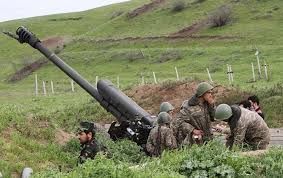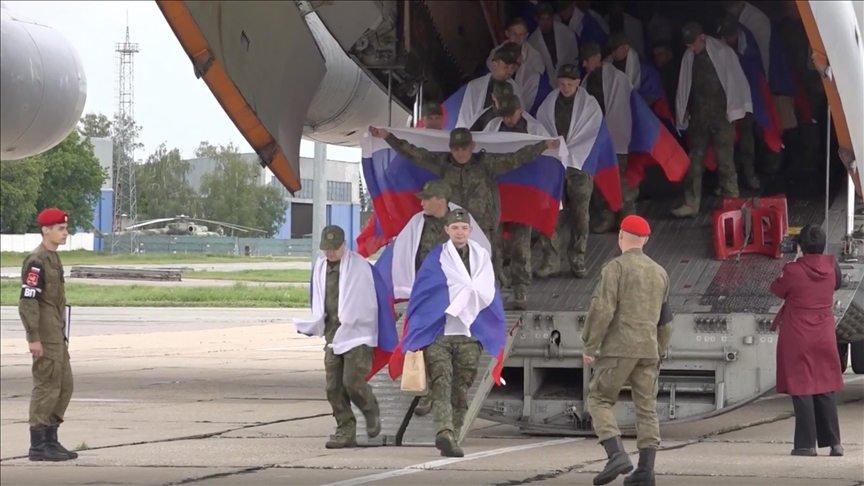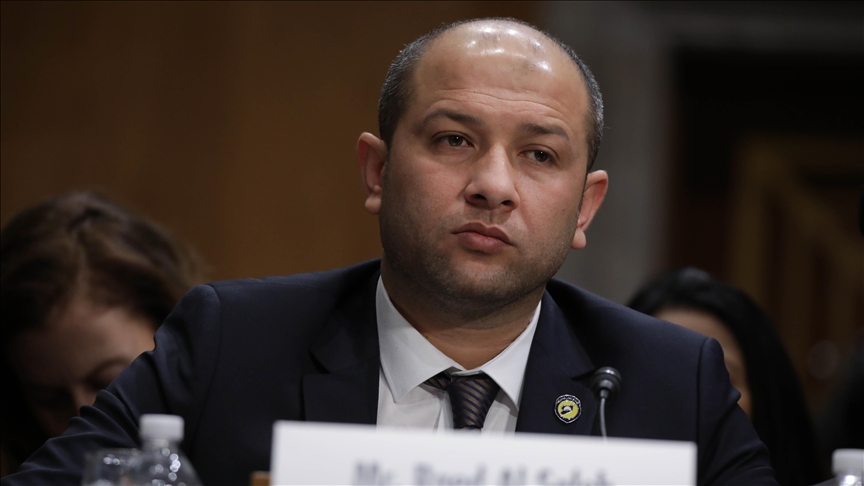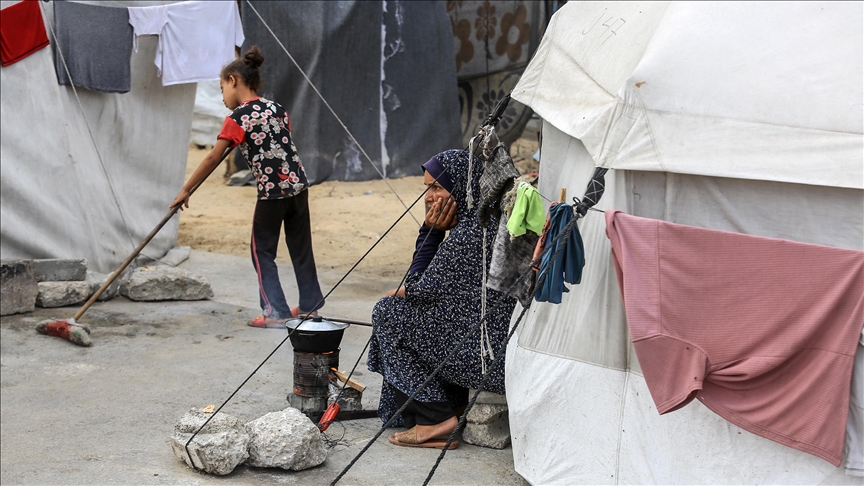On July 12th 2020, Azerbaijan’s Defence Ministry reported a military incident in the north-west of the country, namely the province of Tovuz, near the border with Armenia. Although the border shootouts are not infrequent in the said province and many considered it to be another, one-time incident, the situation soon got out of control and quickly grew into almost a full-scale war.
The two countries have been in a state of war for more than three decades due to Armenia’s occupation of Nagorno-Karabakh and surrounding territories, both recognised by international law as a part of Azerbaijan. The conflict which broke out as inter-ethnic skirmishes within the Soviet Union in 1988, soon turned into one of the bloodiest wars of the 1990s, claiming 20,000 lives from both sides.
By 1994, when the active phase of the war came to an end, Armenian forces had occupied 20 per cent of Azerbaijan’s territories, including the former Autonomous Province of Nagorno-Karabakh and seven adjacent administrative regions and expelled over 700,000 Azerbaijanis from their homes. The ceasefire meant to end the war has, nevertheless, been very fragile, with the situation in the region mostly remaining far from being a ”frozen conflict”, a term used to denote several ethnic conflicts in the post-Soviet space. The last major eruption in this area happened in April 2016, when an Azerbaijani army offensive led to the recovery of several square kilometres of land during the so-called Four Day War.
This time, however, the major theatre of war is the direct border between the two countries, a couple of hundred kilometres away from Nagorno-Karabakh. The clashes began on July 12th and continued, with short breaks, for the next two days. Although not all the details of the hostilities are known, reports indicate heavy artillery shelling and drone assaults. Several people have already been reported by the Azerbaijani side as killed, including a well-known general as well as a non-combatant who lived in the village subject to the Armenian fire. These deaths caused frustration and sparked anger in Azerbaijan, which now makes holding violence back a much more difficult task. However, Azerbaijan’s Ministry of Defence has announced that it refuses to target Armenian civilians pledging to fire exclusively upon military facilities and infrastructure.
While the Armenian authorities have claimed that responsibility for the outbreak lies on the Azerbaijani side, there is no incentive for Baku to initiate any military actions in this specific region, and there are several reasons for this assertion.
First, the area where the clashes are taking place is situated near critical infrastructure nodes and linkages that underpin the economic fabric of the country. During the conflict those vital infrastructures, such as the Baku-Tbilisi-Ceyhan oil pipeline, Baku-Tbilisi-Erzurum gas pipeline, and Baku-Tbilisi-Kars railway, could become targets of the other side’s coordinated attacks. Ensuring physical protection of those key infrastructures is a matter of Azerbaijan’s national security and their destruction could disproportionately affect the country’s entire economic fabric. It is difficult to understand why Azerbaijan would risk physical security of that infrastructure.
Second, any escalation of violence along the uncontested border, an area which is densely populated on both sides and far from the occupied territories of Nagorno-Karabakh and its surrounding areas, is not in the best interests of Azerbaijan. An important distinction should be made here between the notions of “border” with Armenia, and the “contact line” with Armenian forces in Nagorno-Karabakh and the adjacent territories. The official Azerbaijani position entails avoiding escalation along the borders with Armenia, as Baku does not hold any kind of territorial claims towards the internationally-recognised territories of the opposite side. Accordingly, initiating a provocation in Tovuz, which is situated along the border and is far from the contact line, is against the Azerbaijani rationale for dealing with the current conflict.
Third, the aforementioned claim contradicts Azerbaijan’s plans for gradual demilitarisation of the direct borders with Armenia. Since December 2018, as part of measures aimed at reducing violence along the border, the Azerbaijani side has been transferring the military outposts and military units in the northern borders with Armenia, namely, in Qazax and Agstafa regions, from the Ministry of Defence to the State Border Service. Tovuz, where the skirmishes broke out, was expected to be next in line. This specific move from Baku was again intended to send a clear message that Baku was keen to differentiate between the borders with Armenia and the line of contact in Nagorno-Karabakh. Thus, setting up a planned attack from Tovuz not only makes little sense from the standpoint of what messages Baku has been attempting to deliver to the international community, but also from the standpoint of its longstanding plans of military restructuring along the north-western borders.
Fourth, the Azerbaijani side in the last two years has made its best to inspire a more constructive and people-based approach to the conflict. Since his appointment as the Head of the Azerbaijani Community of Nagorno-Karabakh in exile early in 2019, Tural Ganjaliyev put forward a series of initiatives aimed at restoring dialogue between the Azerbaijani and Armenian communities of the region and offering a message of peaceful co-existence. His election as the Member of the Azerbaijani Parliament in February this year indicated support to his constructive approach. Moreover, even after a number of hostile steps from the Armenian side, such as the inauguration ceremony of the “Nagorno-Karabakh president” in the town of Shusha which has a special emotional significance for Azerbaijanis where the highest officials of Armenia were all present, Mr. Ganjaliyev tried to ease tensions and a sense of frustration among Azerbaijanis.
Finally, a direct attack against Armenia, a member of the Collective Security Treaty Organisation (in other words the “Russian NATO”), outside of the occupation zone clearly does not fit within Azerbaijan’s long-term strategy. Had Baku chosen to start a war, a more comfortable ground would have been Nagorno-Karabakh and surrounding districts, which constitute the universally recognised part of Azerbaijan and do not fall under CSTO jurisdiction, making direct military interference by any third party less likely. In the case of an open confrontation between Baku and Yerevan along undisputed territory, however, interference by the CSTO, of which Armenia is a member, could be inevitable. Therefore, while having definitely become forced to give a hard response to the loss of several high-profile officers, Azerbaijan is at the same time restrained in its reaction since the spillover of the hostilities into Armenian territory risks unpredictable consequences. In this regard, some observers have even made a comparison with the catastrophic repercussions of the Russian-Georgian war of 2008.
Commenting on the border clashes, Turkey’s President Recep Tayyip Erdoğan stressed Turkey’s unconditional support for Azerbaijan and noted that “this attack is an event that goes beyond Armenia”. At the same time, some Armenian news and Telegram channels started sharing footage of Russian helicopters from the 102nd military base in Gyumri patrolling the Armenian-Turkish border, insisting that the patrolling started in response to Turkey’s declarations. However, the Russian side denied that they were patrolling the border, claiming that it was part of the pre-planned military drills that had started on July 13th.
Nevertheless, while trying to identify the reasons for the outbreak, we cannot fully rule out the CSTO factor either: especially considering that the Armenian side renewed its national security strategy on July 10th, just days before the shootings began, where a considerable emphasis was put on the alliance with Russia and on CSTO membership. Accordingly, it may be speculated that by initiating fighting along the state border, Armenian leader Nikol Pashinyan attempted to check the pulse to see whether the CSTO could be dragged into a conflict. A positive response could have strengthened the Armenian-CSTO (or Armenian-Russian) military alliance (which had been deteriorating due to Pashinyan’s recent measures, such as the arrest of the CSTO’s chairman from Armenia), while a negative reaction (or absence of reaction at all) could further triggered anti-Russian sentiments in Armenia.
Soon after the skirmishes broke out, Armenian authorities indeed called on the organisation to get involved. But the CSTO’s reaction was not urgent. It first called, and then abruptly cancelled, an emergency session of the organisation’s security council, postponing it until an undetermined date. Moreover, two important members of the military bloc – Belarus and Kazakhstan – have usually been supporting Azerbaijan’s position on the Karabakh issue and could play an important role in holding off a CSTO session.
This latest escalation should also be placed in the wider context of recent developments in the region which were seen as provocative by Baku. Last May, Pashinyan participated in the swearing-in ceremony of the “president” of the “Nagorno-Karabakh” regime in Shusha – a city with a significant emotional meaning for the Azerbaijani community. In June, Armenia announced the construction of a new highway connecting Armenia with Nagorno-Karabakh. Commenting on the announcement, the European Union noted that the decision does not “help to create conditions conducive to trust, peace and reconciliation”. Although the reasons behind those latest provocations are still unclear, it is possible that Pashinyan may be seeking to turn the tables on his critics from opposition groups who charge him with being too soft on Azerbaijan.
Nevertheless, the dramatic military escalation between Azerbaijan and Armenia is now taking place and it is impossible to say how far it may go. As it follows a qualitatively new scenario, the sides find themselves in a state of high uncertainty, while the traditional foreign guardians of the status quo seem to lack the understanding of how to put the sides to peace in such unusual circumstances.
Yet, this outbreak is also the natural outcome of years of neglect and mismanagement of the Nagorno-Karabakh conflict by the international community. The lessons of 2016 were not learnt well enough which continued to rely on obsolete instruments and methods for maintaining the status quo. While there has been growing recognition of the fact of the illegal occupation of the Azerbaijani territories, Armenia’s “Velvet Revolution” of 2018 has produced unsubstantiated expectations that the new government of Armenia would be willing to revive a peace process. In fact, the lack of international pressure upon Armenia only meant that the Pashinyan government gradually slid towards populism on the Nagorno-Karabakh issue and made a number of provocative steps that ignited the situation even further, as mentioned above. No ceasefire can be lasting unless it is supported by tangible measures to finally restore the rights of Azerbaijani IDPs and hold the territorial ambitions of the Yerevan elite.
The border clashes highlighted once more the fundamental fragility of the current status quo in the Nagorno-Karabakh conflict. Without urgent de-escalation, they will aggravate the conflict even further, rendering any meaningful attempt at a peaceful resolution virtually impossible.
This article is authored by researchers of Topchubashov Center: Rusif Huseynov, Murad Muradov, Polad Muradli, Ayaz Rzayev.
Article is originally published in New Eastern Europe.










